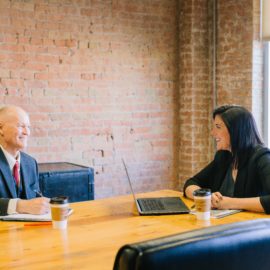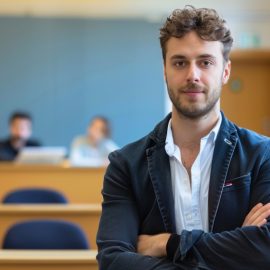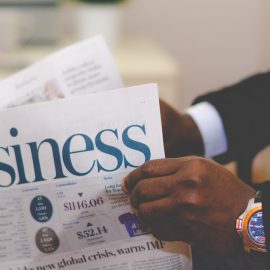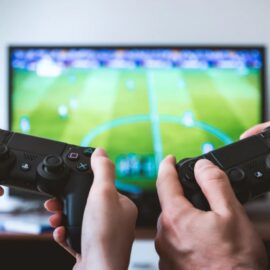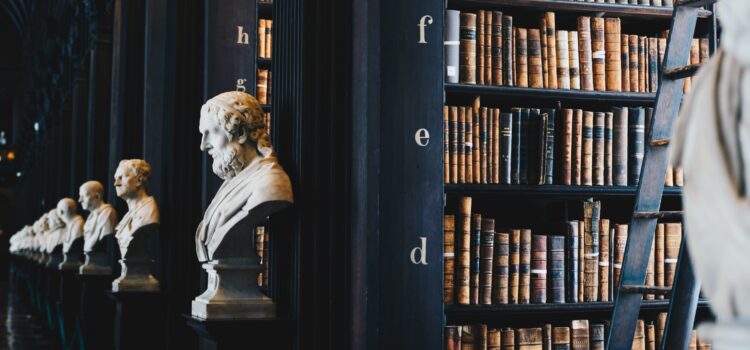
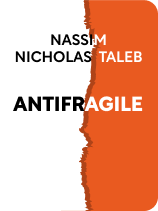
This article is an excerpt from the Shortform book guide to "Antifragile" by Nassim Nicholas Taleb. Shortform has the world's best summaries and analyses of books you should be reading.
Like this article? Sign up for a free trial here .
What was Nassim Nicholas Taleb’s education like? How did he focus his time and how did he develop the idea of antifragility?
For Nassim Nicholas Taleb, education was an opportunity to study things that interested him, and learn as much as possible. Through his education, Taleb preferred to spent his energy studying things that interested him.
Read more about Nassim Nicholas Taleb’s education below.
Nassim Nicholas Taleb’s Education
In discussing his own experience with education, Taleb first describes himself as an autodidact, but quickly amends it to note that he does have formal degrees. He describes his learning in terms of the barbell model: He devoted exactly as much time and energy as he needed to pass his classes, and he used the rest to study whatever caught his interest.
In his edcuation, Nassim Nicholas Taleb quickly noted the limited material available in schools and how schools tried to force students to study certain topics and authors and cultivate specific ways of thinking. This is harmful and discouraging to a lot of students—those who aren’t interested or able to focus on the material might grow discouraged with the entire act of learning, instead of simply with those subjects and methods. Taleb reads voraciously, and always has, but the moment he feels his attention drifting he closes the book and looks for another. He allows natural interest and avoiding boredom to guide both his study and his life.
In his 20s, Taleb became a very wealthy man (getting what he describes as “f*** you money*). His father attributes Taleb’s success to the breadth of education he allowed and encouraged Taleb to pursue.
In the end, Taleb was drawn to probability and risk studies. He spent years reading everything he could about it, and nothing else. As always, he was guided by passion and boredom avoidance.
Five years after starting on that new topic in earnest, he was set for life; his barbell method of learning paid off in a big way. Moreover, his fortune came largely from what he learned outside of the classroom, which left him with the impression that what people really need to know about a topic is found outside of the prescribed literature.
Focus on Results, Not “Truth”
Socrates, one of the most famous and influential thinkers of all time, was obsessed with defining things to determine what they really are. Many of his debates—or at least his debates as framed by Plato—involve him hounding someone to define things, such as in Euthyphro where he pesters a supposed religious man to give a definition for the word piety. These conversations invariably end with Socrates’s opponent giving up and Socrates concluding that the other man had no idea what he was talking about.
Socrates’s dialogues are at the very heart of philosophy: the search for truth and meaning in the world. However, what if someone more practical—and less prone to being suckered by leading questions—were to engage Socrates in conversation? What if Fat Tony were to take the place of Socrates’s debate partner in Euthyphro?
They would reach a point where Fat Tony says that he can’t define piety, and that doesn’t matter, because he knows what it is anyway. All that Socrates is doing is confusing people by forcing them to take what they know and put it into words. It’s not necessary; a baby doesn’t need to know the definition of “milk” in order to drink it, and nobody needs to have a textbook understanding of aerodynamics in order to ride a bike.
In fact, far from expanding knowledge in the search for truth, Socrates was intentionally limiting it. He was trying to force people to use only knowledge that could be explained with concrete definitions. Like scientific theories and outcome-focused research, such knowledge is fragile. That was demonstrated plainly enough as Socrates himself repeatedly broke the knowledge that people offered, simply by questioning it.
Truths are less important than results. Perhaps a holy man can’t define piety in a way that satisfies Socrates, but that doesn’t make him any less pious. The merchant who defeated Ariel Rubinstein’s game theory probably couldn’t make a scientific flowchart of his haggling process, but that didn’t make it any less effective.
In short, people live their lives based on the outcomes of their actions, rather than any compulsive need to define those actions. Furthermore, outcomes are almost always asymmetric: They have more upside than downside, or vice versa. In other words, we are fragile or antifragile to the results.
Consider what happens at airports. It’s almost certain that any given passenger isn’t a terrorist; that’s the truth. However, the outcome of a single terrorist is so bad that we check everyone for weapons anyway.
No doubt you could think back on the past week and recognize the same thing in your personal life. Perhaps your decisions were partly based on how likely it was for something to happen, but probably they were based mostly on the outcome if that thing did happen. Did you brush your teeth each night because they’re likely to rot and fall out of your mouth if you skip a night, or did you do it simply to avoid that small risk?

———End of Preview———
Like what you just read? Read the rest of the world's best book summary and analysis of Nassim Nicholas Taleb's "Antifragile" at Shortform .
Here's what you'll find in our full Antifragile summary :
- How to be helped by unforeseen events rather than harmed by them
- Why you shouldn't get too comfortable or you'll miss out on the chance to become stronger
- Why you should keep as many options available to you as possible

